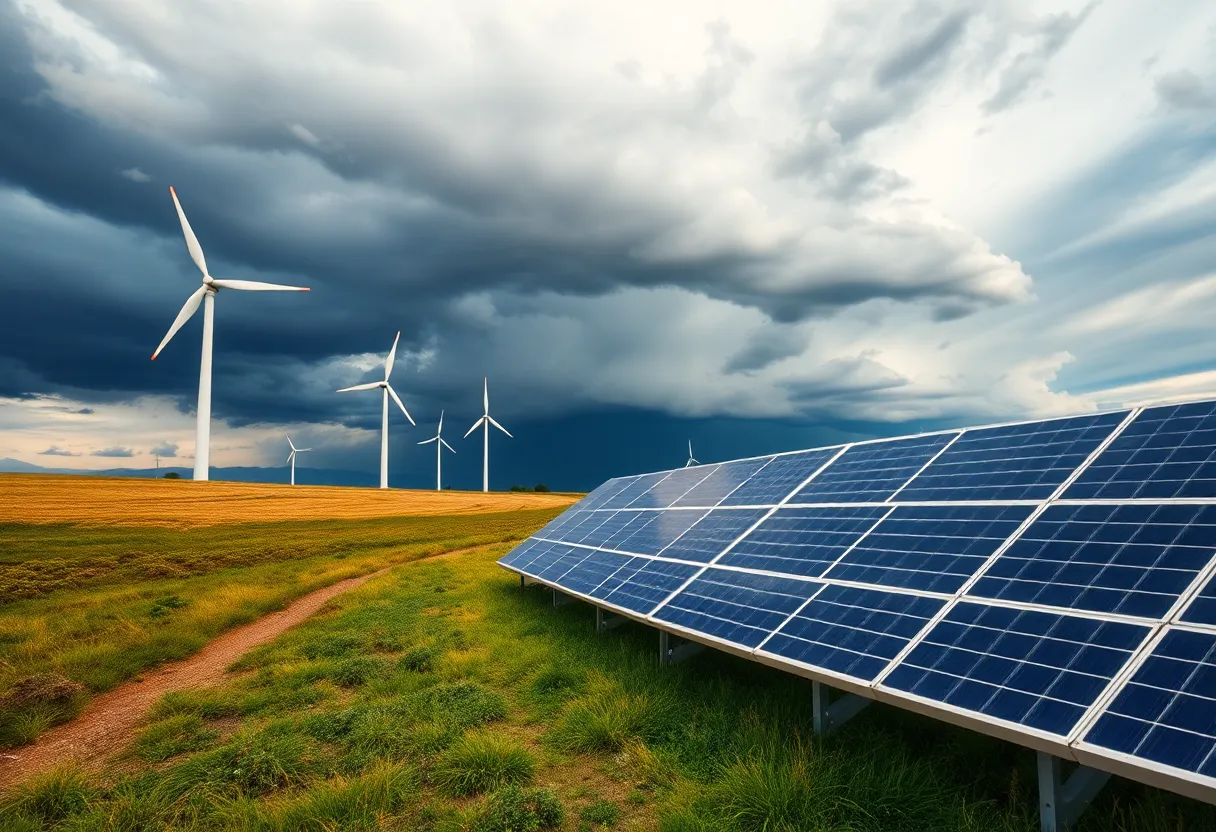News Summary
A recently proposed Senate bill by Republicans could jeopardize the future of wind and solar energy in the U.S. by eliminating federal subsidies by 2027 and introducing new taxes. These changes could halt numerous renewable projects, risking thousands of jobs and contradicting the objectives of the Inflation Reduction Act. The legislation emphasizes fossil fuel promotion and tightens eligibility for renewable energy components sourced from countries like China, raising concerns about the broader impact on clean energy technology and initiatives.
Senate Bill Poses a Major Challenge to Wind and Solar Energy
In a surprising turn of events, Senate Republicans have pushed forth a massive domestic policy bill that threatens the future of wind and solar energy in the United States. Slipped into a hefty 940-page document released just past midnight on a Friday, these provisions could deal a significant blow to the renewable energy sector.
End of Federal Support?
One of the most troubling aspects of this bill is its plan to eliminate existing federal subsidies for wind and solar energy. This phase-out is slated to occur by 2027, raising concerns that it could derail numerous projects already in the pipeline. With hundreds of initiatives at stake, billions in manufacturing investments may also hang in the balance.
New Taxes and Penalties
The bill doesn’t stop with subsidy rollbacks. It also introduces a new tax on future renewable energy projects, which industry insiders fear could devastate the clean energy landscape. Additionally, any new wind and solar farms starting operations after 2027 would face penalties, even if they do not receive federal financial support. Recent trends show rising electricity prices and a higher demand for clean energy, making this legislation all the more concerning.
Contradicting Previous Legislation
This proposed legislation stands in stark contrast to the Inflation Reduction Act, which aimed to move the U.S. away from fossil fuels and create a more sustainable energy future. Passed by Democrats in 2022, the act provided vital incentives for green energy, making the current push to eliminate federal subsidies feel like a step backward.
Focus on Fossil Fuels
The ongoing conversation about this bill can’t ignore the fact that it seems to be focusing on promoting fossil fuels instead of advancing renewable energy sources. This aligns with the previous encouragement from the administration to rollback renewable subsidies, while frequently disparaging climate science. Much of this effort appears to be driven by conservative factions within the party, who are pushing for even deeper cuts or outright elimination of these essential clean-energy incentives.
Impact on Job Creation
At the heart of this legislation are concerns about potential job losses and the detrimental effects on businesses that rely on government support for renewable energy initiatives. Industry associations express that the elimination of these tax credits could wipe out thousands of jobs, which is something no one wants to see happen, especially amid ongoing economic challenges.
Tightening Eligibility Requirements
In addition to slashing existing incentives, the bill proposes strict eligibility restrictions for companies that rely on components sourced from countries like China. With China being a dominant player in the global supply chain, navigating these requirements may become a daunting task for many businesses looking to invest in new projects.
Effects on Broader Energy Development
The proposed legislation could even extend its reach to other areas of clean energy technology, affecting support for electric vehicles, home solar installations, and components necessary for wind turbines. While extending support for nuclear and geothermal energy for up to a decade longer, the bill seamlessly phases out tax credits for wind and solar power starting next year.
The Path Forward
With significant opposition from conservative factions, the effort to preserve wind and solar tax credits faces serious challenges. As lawmakers discuss potential budget cuts to health care and social safety net programs to fund these tax adjustments and military spending increases, it’s crucial for them to weigh the implications of these decisions on local economies and communities built around renewable energy. The decisions made in the coming weeks will undoubtedly influence the landscape of clean energy in the U.S., and it’s essential to stay informed as this story unfolds.
Deeper Dive: News & Info About This Topic
- The New York Times: GOP Bill Threatens Wind and Solar Energy
- Wikipedia: Renewable Energy
- Politico: New Tax on Solar and Wind Power
- Google Search: Renewable Energy Taxes
- The New York Times: Senate Republicans on Reconciliation
- Google Scholar: Climate Policy
- The New York Times: Trump Bill on Clean Energy Tax Credits
- Encyclopedia Britannica: Climate Change
- Salt Lake Tribune: Last-Ditch Battle for Renewable Energy
- Google News: Energy Policy

Author: STAFF HERE AUGUSTA WRITER
The AUGUSTA STAFF WRITER represents the experienced team at HEREAugusta.com, your go-to source for actionable local news and information in Augusta, Richmond County, and beyond. Specializing in "news you can use," we cover essential topics like product reviews for personal and business needs, local business directories, politics, real estate trends, neighborhood insights, and state news affecting the area—with deep expertise drawn from years of dedicated reporting and strong community input, including local press releases and business updates. We deliver top reporting on high-value events such as Arts in the Heart Festival, Westobou Festival, and Masters Week. Our coverage extends to key organizations like the Augusta Metro Chamber of Commerce and Greater Augusta Arts Council, plus leading businesses in manufacturing and healthcare that power the local economy such as Textron Specialized Vehicles, Cardinal Health, and Nutrien. As part of the broader HERE network, including HEREAtlanta.com and HERESavannah.com, we provide comprehensive, credible insights into Georgia's dynamic landscape.


